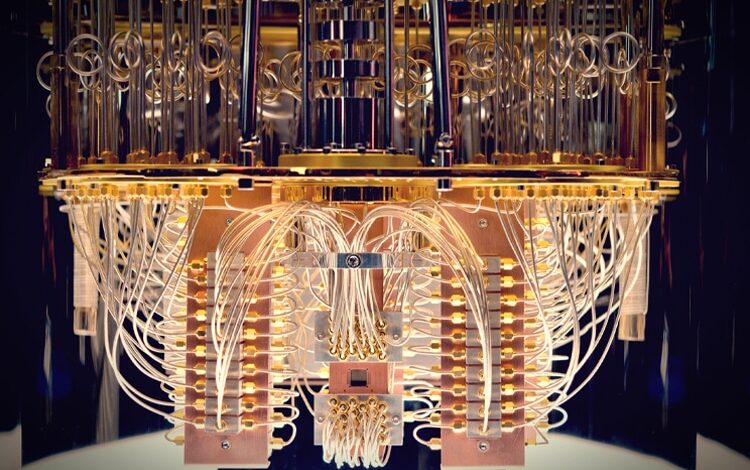How Quantum Computers Work: An Overview

[ad_1]
quantum computer We have compiled information about. When the subject enters the quantum field, it becomes very difficult to understand and visualize this computer. Of course, the concepts of quantum physics field make the job even more difficult. It is now a fact that a new era will begin with these computers. Good reading.
What is Quantum Computer?
Quantum computers are faster than we could ever imagine from traditional computers. Quantum These are computers that are powered by the superposition and entanglement elements of physics and process information very quickly and in unique ways. It has faster and more efficient processing power than any computer when operating on data.
With the development of quantum physics, the idea of using quantum computers has also made progress. It was conceived by Nobel physicist Richard Feynman in the early 1980s to analyze and simulate the complex and long-lasting equations of quantum physics. In 1981, Paul Beniof created the quantum computer theory based on Max Planck's ideas.
Quantum Computing and Challenging Operations
Quantum computers are computers that can run very difficult quantum algorithms much faster than the processor of a standard computer. It does this by using the principles of quantum mechanics, which are responsible for the operation of large systems such as photons, atoms, electrons and elementary particles, and superconducting circuits. It utilizes the principle of subatomic particles existing in more than one state.
How Do Quantum Computers Work?

It was developed with the principles of quantum theory, which attempts to study energy and matter at the atomic and subatomic level. When performing operations on quantum computers, quantum bits, also known as quantum bits (qubits), and superposition, that is, the ability of subatomic particles to exist in more than one state, are used. Qubits are very sensitive and very difficult to maintain. They react to even the slightest change in their environment and may lose their data. They store information in these units called qubits.
Quantum computers do not use the bit units of standard computers, they use these units called qubits. Quantum computers do not use transistors that are 1 or 0 like traditional computers. Unlike traditional computers, whose information is only 0 and 1, a quantum computer can be one of them. It becomes a superposition of both 0 and 1. This superposition parallelizes operations by performing safe calculations and transformations.
Some Problems of Quantum-Based Computers
Since qubits are fragile, that is, sensitive, their interaction with the external environment causes them to collapse and lose their quantum properties in a process known as decoherence. If this process occurs before the algorithm finishes working, all information stored in the qubits is lost. Meanwhile, it becomes difficult to keep other qubits consistent. For these reasons, a quantum computer must be isolated from the external environment. The stricter the isolation of these cold systems, protected from the outside world, the more difficult it becomes to communicate with and control the computer.
Quantum Computing Supremacy

Quantum supremacy is used to indicate that the speed and power of a quantum computer are higher than the power of a standard computer. This power is such that a quantum computer can break almost all encryptions of transactions on the Internet. It needs millions of qubits for this. Today, quantum computers have 100 qubits. For example, it was said that a Chinese team solved a solution that would take nine years in an hour with a quantum computer.
